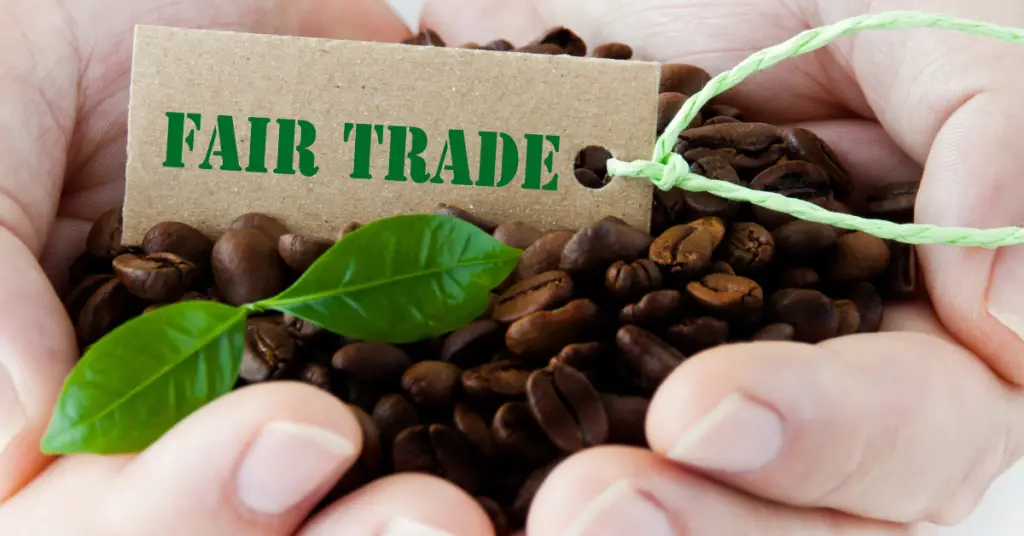Who knew buying a cup of organic coffee could help save the planet? Or give this little thought more of a java-inspired jolt: How about drinking a cup of coffee and saving a climate-stabilizing rainforest?
When it comes to our coffee, we’ve been buying into the petrochemical processing linked with global warming and sponsoring heavy spraying of chemicals that sicken workers and their children who live where conventional coffee is grown.
We’ve also been destroying our own climate-critical rainforests. For the last 35 years, the trend away from the traditional shade-grown coffee farms to sun farms has decimated forests. Of the 6 million acres of coffee farms today, some 3.6 million have been stripped of shade trees.
We have helped to eliminate bird species while increasing the presence of devastating insects and fungi that attack the coffee plants, thereby requiring tons of toxic pesticides to offset losses of up to 35 percent of the crop.
Buying organic coffee breaks this trend and makes your cup of coffee not just an indulgence but an act of pure environmental awareness.
The organic fair trade label virtually ensures that the coffee is produced under safe and healthy working conditions exemplifying fair trade and emphasising sustainable development and a fair price for producers.
Choosing organic shade-grown coffee rather than sun-farmed coffee is also important. Growing organic coffee isn’t only about not using chemical pesticides and fertilizers,” says the Green Mountain Coffee Roasters (the nation’s leader in sourcing fair trade coffee).“It’s really about being in tune with the environment, and working with the ecosystem, rather than against it.
Organic farmers are reaching back to their traditions: replanting trees to grow coffee under natural shade canopies, enriching the soil with natural compost, and along the way they’re reaping the benefits of a rich and diverse flora and fauna, and greatly improved water quality.
Coffee forests serve to cool the earth by the evaporation, transportation, and recycling of millions of gallons of water, favoring cloud formation and abundant rainfall. Stop this natural flow and stop the life of the earth and the trees and the weather of the earth.
The nitrogen-fixing shade trees provide habitat for birds and butterflies that, in turn, provide natural insect control with their constant foraging, all without fungicides and pesticides.
Shade-grown coffee plantations play a key role in the conservation of migratory birds that have found a sanctuary in their forest-like environment.
Here’s what you can do:
Demand organic coffee. If your favorite coffee place doesn’t have it, find one that does. Dunkin’ Donuts has fair trade espresso. If enough of us do this, we will have fair trade on the daily menu for all cups of coffee (as well as when buying by the pound).
Although shade-grown coffee (which is almost always grown organically)makes up only around 1 percent of the U.S. market, if everybody changed now and bought a pound a month of fair trade coffee, you can imagine what a positive impact that would have on the rainforests.
One simple thing to do is to participate in their Bird Friendly® coffee program created by the Smithsonian, which supports 32 farms in 7 countries—Bolivia, Colombia, El Salvador, Guatemala, Mexico, Peru, and Venezuela—that produce “Bird Friendly”-certified coffee beans to sell to roasters in the United States and Canada.
The more than 2,372 growers on these farms produce in excess of 7,777,308 pounds of coffee on more than 7,236 hectares of shaded farmland.
Growing coffee naturally keeps our planet in balance, thus helping to control global warming.

Erzsebet Frey (Eli Frey) is an ecologist and online entrepreneur with a Master of Science in Ecology from the University of Belgrade. Originally from Serbia, she has lived in Sri Lanka since 2017. Eli has worked internationally in countries like Oman, Brazil, Germany, and Sri Lanka. In 2018, she expanded into SEO and blogging, completing courses from UC Davis and Edinburgh. Eli has founded multiple websites focused on biology, ecology, environmental science, sustainable and simple living, and outdoor activities. She enjoys creating nature and simple living videos on YouTube and participates in speleology, diving, and hiking.

